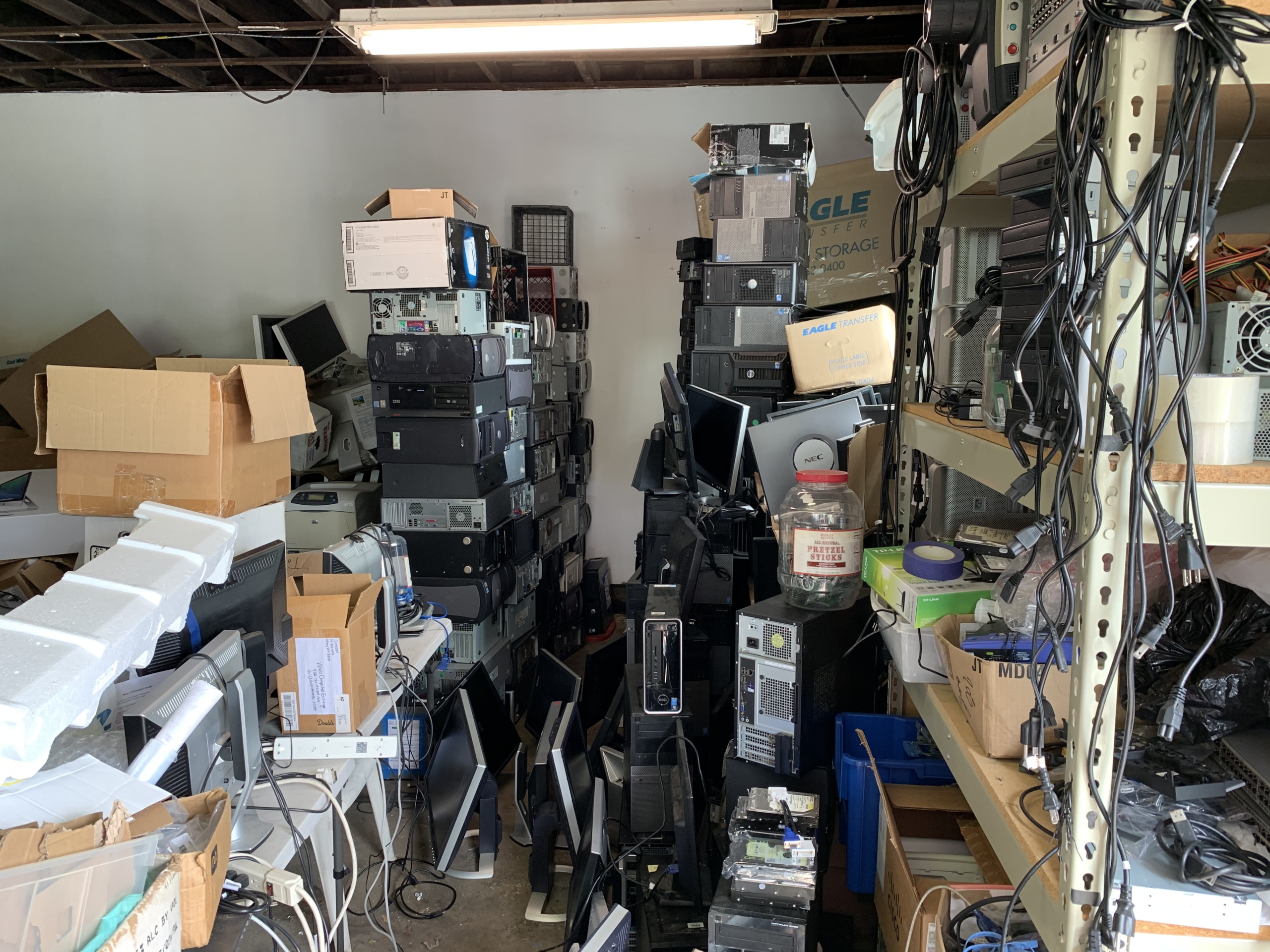
Industry scrambling to slow Right to Repair movement as momentum grows
Our February 2022 Right to Repair update

The first six weeks of 2022 have seen a flurry of action on Right to Repair, including some notable gains and tough setbacks. Here are some of the highlights:
Already, 19 states have filed or carried over Right to Repair bills.
States continue to file and advance Right to Repair legislation all across the country. Here’s a roundup: California (covers consumer devices), Colorado (powered wheelchairs), Connecticut (all non-car equipment), Florida (farm equipment, both in the House and Senate), Georgia (all non-car equipment), Hawaii (3 new bills, Senate Bills 2330 and 2690 and HB1405, and 4 carryovers), Illinois (all non-car equipment), Massachusetts (exempts cars and medical equipment), Maryland (House bill which covers farm equipment, Senate bill which covers consumer devices), Michigan (farm equipment), Missouri (one covering farm equipment, one covering all non-car devices), Nebraska (farm equipment), New Jersey (all non-car devices), New York, (four bills, S. 4104 and A. 7006 which cover all non-car and non-medical devices, one for farm equipment and one concerning cars), Oklahoma (all non-car devices), Pennsylvania (House and Senate, both cover all non-car devices), Virginia (all non-car devices), Vermont (consumer electronics), and Washington (House and Senate, covering personal electronics). Phew!
We’ve passed bills through 6 committees in four states …
In just the first few weeks of legislative action, Right to Repair bills cleared committees in Minnesota, Nebraska and Massachusetts, and three different committees in Washington.
… But we’ve had some big setbacks, most recently in Washington state
Our Washington bill had considerable momentum — one reason it had sailed through its first three committees was that we had negotiated with Microsoft so the company was neutral. Unfortunately, the bill didn’t get a chance for a floor vote before the procedural deadline (Feb. 15). As momentum heated up, some lawmakers proposed a slew of bizarre amendments (check the list here), mostly based on already-debunked concerns over privacy and warranties. One amendment would have even required independent repair shops to warn customers in writing that independent repair may void the warranty, despite the fact that it is generally a violation of federal law to void the warranty in such an instance!
Additionally, the sponsor of the Maryland Senate bill withdrew that legislation and the Delegate who proposed the Virginia bill did too.
Bipartisan bill in Congress aims to remove copyright barriers to repair
On Feb. 2, Reps. Mondaire Jones (D-NY) and Victoria Spartz (R-IN) filed the Freedom to Repair Act (HR 6566), which would end an unintended consequence of an outdated copyright law that outlaws certain types of repair and repair tools. The 1998 Digital Millennium Copyright Act (DMCA) makes it a crime to bypass digital security locks. Manufacturers can place repair functions behind these digital locks, which makes fixing everything from tablets to tractors you bought from them and own, in effect, a copyright violation. While state Right to Repair reforms can require access to manufacturers’ repair materials, states cannot change federal copyright law, which means getting these reforms through Congress is essential to removing copyright barriers to repair.
Sen. Jon Tester files Agricultural Right to Repair Act
On Feb. 1, Montana Sen. Jon Tester filed his Agricultural Right to Repair Act in the U.S. Senate. To support the bill, U.S. PIRG’s Kevin O’Reilly interviewed farmers around the country. He cataloged a host of stories about why farmers need Right to Repair which were featured in an exclusive piece run by NBC News. Together with the National Farmers Union, we released a new survey that found 95% of the farmers surveyed support Right to Repair.
Deere sees faces mounting legal troubles
Multiple class action lawsuits have been filed against John Deere, accusing the company of violations of antitrust laws in the way they restrict repair. At least two of the suits have been reported publicly — one from a farm in North Dakota and another from Alabama — and it appears others may be announced soon. Both lawsuits cite our report, “Deere in the Headlights.” You can’t say we didn’t try to warn them.
President Biden touted Right to Repair as he discussed his competition agenda
Last July, President Joe Biden signed an executive order aimed to promote competition in the American economy, which included some actions related to Right to Repair. In late January, the president discussed his support for Right to Repair when reviewing his administration’s approach to competition. He noted how pressure from the administration has helped convince companies to change their approach. As I told the Washington Post, “The White House’s support for right to repair has moved the issue forward.”
Now, it’s time for us to need to finish the job.
Other quick hits and media highlights:
-
Repair.org’s Gay Gordon-Byrne gave a terrific Ted Talk.
-
One way to gauge our impact on the world is watching the manufacturers scramble to tout their pro-repair actions. Microsoft and Valve are working with iFixit to support repair of their devices, Dell has announced a new hyper-repairable concept laptop, Google announced new Chromebook repair programs.
-
CALPIRG did a voter survey and found huge support for Right to Repair, with 75% in support and only 6% opposed.
-
We examine Google’s repair track-record as shareholders call for change.
Topics
Authors
Nathan Proctor
Senior Director, Campaign for the Right to Repair, PIRG
Nathan leads U.S. PIRG’s Right to Repair campaign, working to pass legislation that will prevent companies from blocking consumers’ ability to fix their own electronics. Nathan lives in Arlington, Massachusetts, with his wife and two children.
Find Out More

Why Microsoft extended Windows 10 support for schools for $1

Why do we toss working devices?

6 surprising facts from the UN’s 2024 electronic waste report


